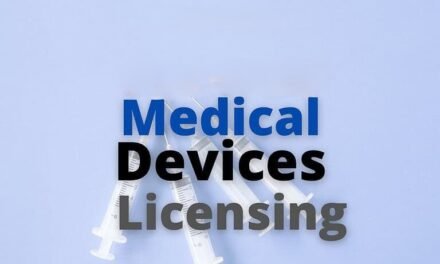
What is the role of venture capital in the medical device industry?

Venture capital (VC) plays a crucial role in the medical device industry by providing the funding and strategic support needed to bring innovative products to market. Startups and emerging companies, particularly in a capital-intensive sector like medical devices, rely heavily on VC investments to navigate the complex processes of research, development, regulatory compliance, and commercialization.
Key Roles of Venture Capital in the Medical Device Industry:
1. Funding Early-Stage Innovation:
- Seed and Series A Investments: VCs provide early-stage funding to support R&D, prototyping, and feasibility studies.
- High-Risk Capital: Medical device startups often have high risks due to long development cycles and regulatory hurdles, which traditional lenders may avoid. VCs fill this gap.
2. Accelerating Product Development:
- Funding Clinical Trials: Medical devices, especially high-risk ones, require extensive clinical testing. VC funding helps cover these costly trials.
- Scaling R&D: VCs enable startups to hire talent, acquire technology, and invest in equipment to speed up development.
3. Bridging the “Valley of Death”:
- Many medical device companies struggle to transition from the prototype phase to market-ready products due to insufficient funding. VCs help bridge this critical gap by providing the necessary capital and resources.
4. Strategic Guidance and Expertise:
- Business Development: VCs often bring in business expertise, helping companies refine their go-to-market strategies and scale operations.
- Industry Connections: VCs connect startups with regulatory consultants, manufacturing partners, and potential customers, accelerating commercialization.
- Recruitment Support: VCs often assist in building a skilled leadership team, including CEOs, CFOs, and other key executives.
5. Supporting Regulatory Compliance:
- Medical devices require stringent compliance with regulatory authorities like the FDA (U.S.), EMA (EU), and CDSCO (India). VC firms often fund the regulatory process, including documentation, testing, and submissions.
6. Facilitating Market Entry:
- VCs provide funding for marketing, sales, and distribution efforts, essential for a successful product launch.
- They help navigate barriers to market entry, such as pricing strategies and reimbursement negotiations with insurers.
7. Encouraging Global Expansion:
- VC firms often fund efforts to obtain international regulatory approvals (e.g., CE Mark, FDA clearance) and help startups enter global markets.
- They may leverage their global networks to facilitate partnerships and collaborations in key regions.
8. Driving Industry Consolidation:
- VCs play a role in mergers and acquisitions by funding startups that are potential acquisition targets for larger medical device companies.
- This exit strategy benefits both the startups and the VCs, while fostering industry innovation.
9. Fostering Innovation:
- VCs actively seek disruptive technologies like AI in diagnostics, wearable health devices, robotic surgery, and precision medicine.
- Their funding accelerates the development of breakthrough innovations that might not be viable through traditional funding mechanisms.
10. Enabling Long-Term Value Creation:
- VCs support startups through multiple funding rounds, ensuring sustained growth and readiness for IPOs or acquisitions.
- By providing patient capital, they enable companies to focus on quality and compliance rather than rushing to market prematurely.
Challenges of VC Investment in Medical Devices:
- Long Development Cycles: Medical devices often take years to develop and commercialize, requiring VCs to commit long-term capital.
- Regulatory Risks: Delays or failures in regulatory approval can significantly impact returns.
- Market Dynamics: Changing healthcare policies, pricing pressures, and reimbursement challenges can affect profitability.
- High Failure Rate: Not all devices reach commercialization, making VC investment inherently risky.
Emerging Trends in VC Investment:
- Focus on Digital Health: VCs are increasingly funding devices integrated with IoT, AI, and data analytics.
- Personalized Medicine: Investments are rising in devices that enable tailored treatments, such as genomic-based diagnostics.
- Sustainability and Accessibility: VCs are backing startups developing affordable, portable, and eco-friendly medical devices for emerging markets.
- Telemedicine and Remote Care: The COVID-19 pandemic has driven interest in devices for telehealth and remote patient monitoring.
Impact of Venture Capital:
- Increased Innovation: VC funding fosters the development of cutting-edge medical devices that address unmet clinical needs.
- Faster Market Penetration: With VC backing, startups can achieve market entry and expansion more quickly.
- Enhanced Patient Care: VC-funded innovations often lead to improved diagnostic, therapeutic, and monitoring solutions.
Venture capital is a cornerstone of the medical device industry’s growth and innovation. By providing the necessary funding, strategic guidance, and industry connections, VCs help startups overcome challenges, accelerate development, and bring transformative technologies to market. As the industry evolves, VC investments will remain critical in driving innovation, improving healthcare outcomes, and meeting the growing global demand for advanced medical devices.




























